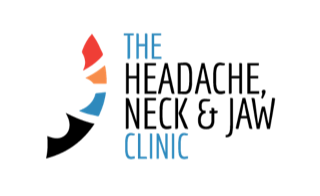Migraine Specialists in Brisbane
The Headache, Neck and Jaw Clinic is a specialist migraine clinic providing treatment and pain relief for a broad range of chronic headache conditions.
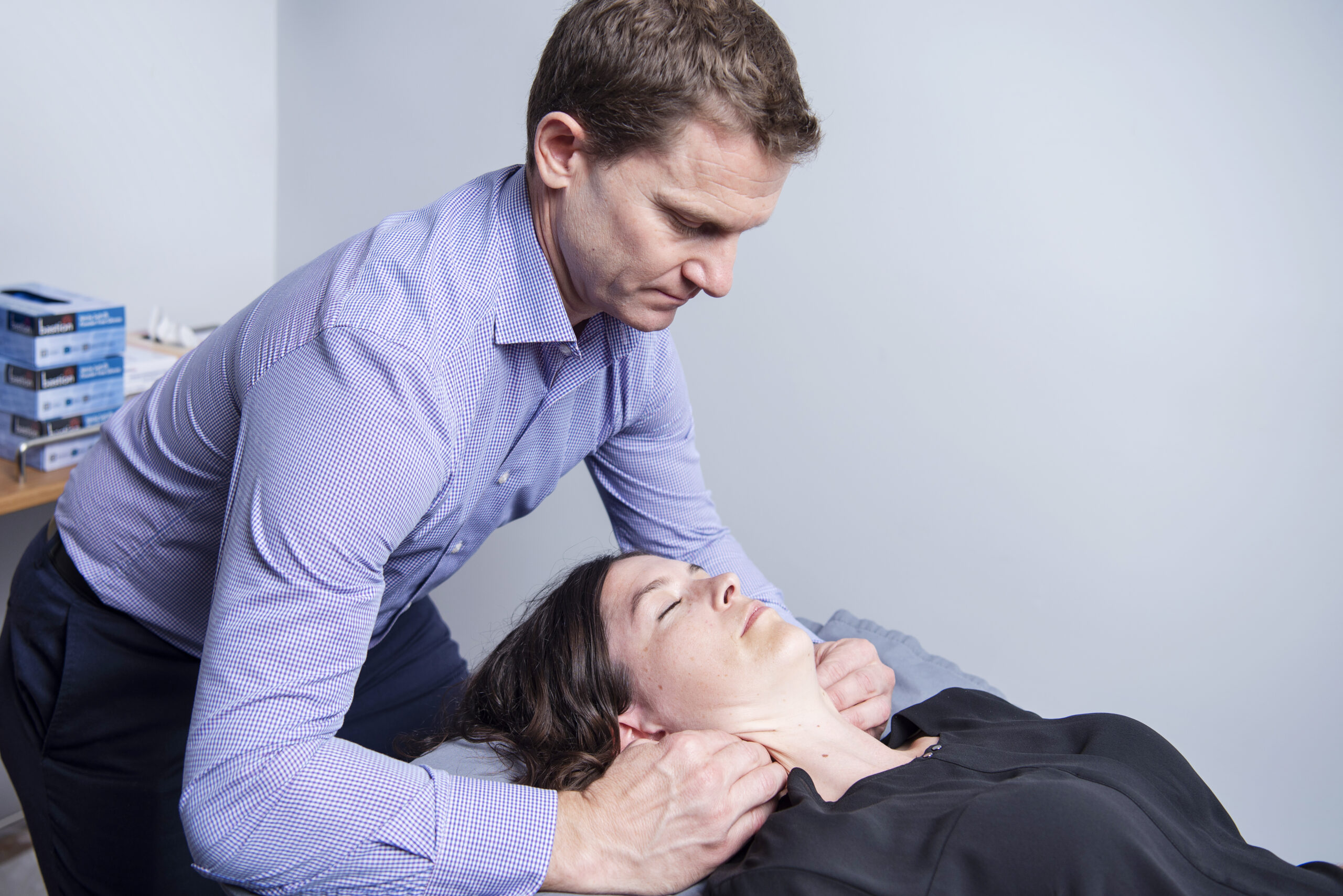
Brisbane Migraine Physiotherapists
Living with migraines can feel isolating, exhausting, and unpredictable. If you’ve tried everything—painkillers, posture exercises, eliminating triggers—and still find yourself losing days to migraine pain, you’re not alone. Migraines affect every part of life: work, relationships, mental health and overall wellbeing.
At the Headache, Neck & Jaw Clinic, we offer a specialised physiotherapy approach that targets one of the most overlooked causes of migraines: the neck. Our Brisbane-based migraine physiotherapists are trained in the Watson Headache® Approach, a world-renowned technique that addresses nerve sensitivity in the upper cervical spine to relieve and prevent migraine symptoms.

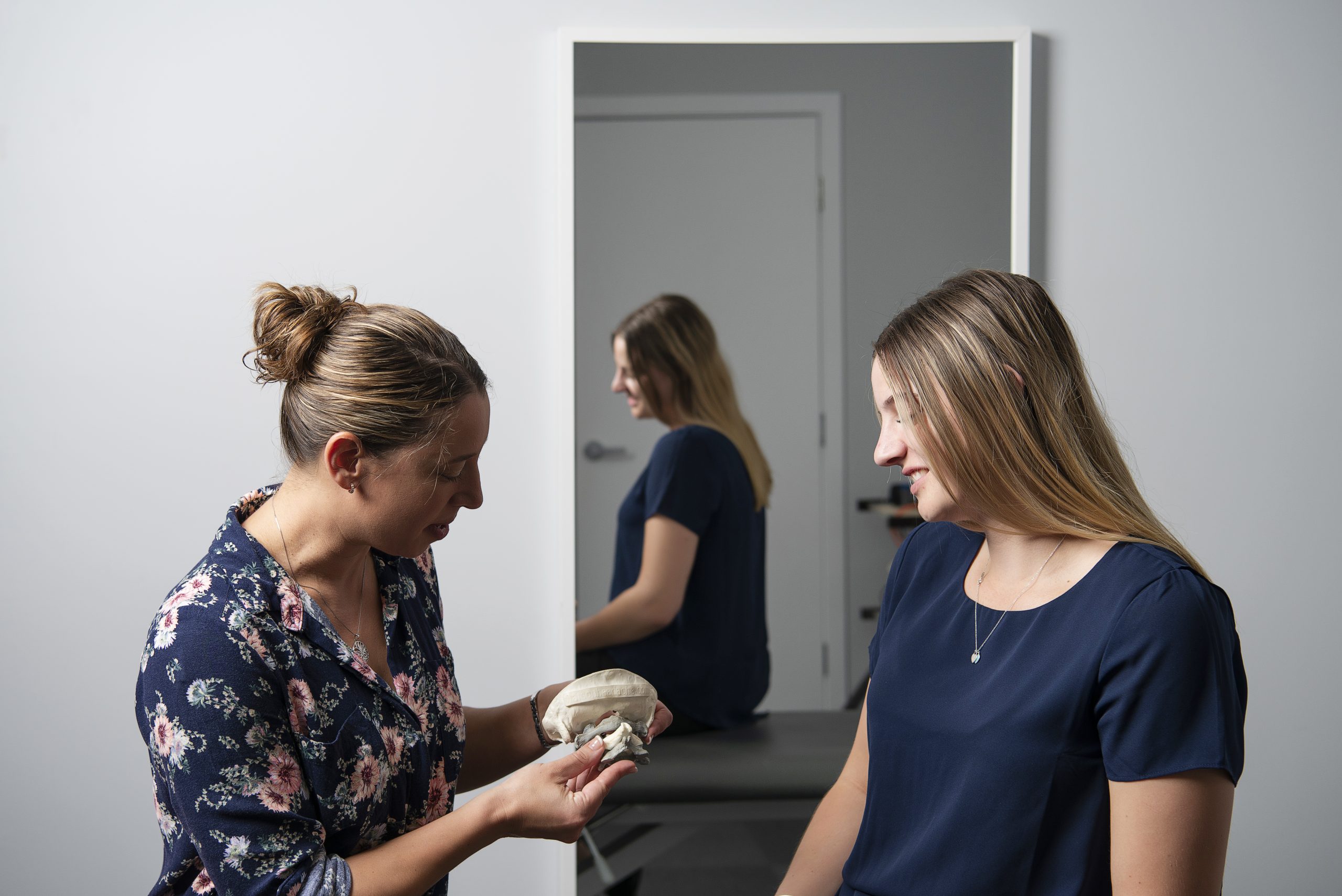
Migraines Are Complex, So Why Settle for a One-Size-Fits-All Approach?
No two migraines are the same. Your symptoms may shift from one episode to the next—eye pain one day, crushing fatigue the next, followed by a week of brain fog or light sensitivity. That’s because migraines often stem from complex neural pathways, not just muscle tightness or poor posture.
Many people don’t realise their neck may be the key driver of their migraines. When nerves in the upper cervical spine become sensitised, they can trigger or worsen migraine symptoms. This neural sensitivity is rarely addressed in standard treatments.
Signs Your Migraines May Be Coming From Your Neck
You may have a cervical component to your migraines if you experience:
- Neck pain before or during a migraine
- Pain localised to one side of the head, or that swaps sides
- Worsening symptoms with neck movement or poor posture
- Headaches that intensify as the day progresses
- Coexisting jaw, eye, or sinus pain
Our approach is hands-on, targeted, and based on your unique symptom pattern. We're not here to throw generic stretches at the problem. We’re here to treat the source: your nervous system.
Still in Pain After Previous Physio for Migraines?
If you’ve seen a physiotherapist before and didn’t get results, it doesn’t mean you can’t be helped. Most physiotherapy programs focus on posture correction or muscle tension, without addressing the underlying neural sensitivity driving your migraines.
Our team of Brisbane migraine specialists identify exactly which structures in the upper cervical spine are contributing to your symptoms. Using advanced diagnostic techniques, we can trace the nerve pathways behind the pain you feel in your temples, eyes, jaw, or brow.
We don’t guess. We measure. And we explain every step of the way.
Understanding Migraine Symptoms
To treat your migraines effectively, we need to understand not just where the pain is, but how it’s affecting your life.
Common Migraine-Related Symptoms We Hear From Clients:
- Pain radiating from the neck to the temple or behind the eye
- Pressure across the forehead (one or both sides)
- Sharp or throbbing pain on one side of the head
- Visual disturbances, light and sound sensitivity
- Fatigue, mental fog, low mood or emotional distress
- Pain referred to the jaw, teeth, ear, or sinuses
- Difficulty concentrating, memory issues, disorientation

Book Your Treatment Today
Identifying the triggers and underlying causes of your headaches is the first step towards recovery. Book an appointment at the Headache, Neck and Jaw Clinic, and our physiotherapists can help you find relief.

The Hidden Cost of Migraines:
- Missed work and financial strain
- Struggles with parenting or caregiving
- Loss of time with friends, family and life events
- Side effects and burnout from over-the-counter or prescription medications
- Anxiety around potential triggers (e.g., food, exercise, stress, sleep, hormonal changes)
- Decreased quality of life and self-worth
You deserve more than short-term relief. You deserve a treatment plan that works toward long-term change.
How Our Migraine Physiotherapy Works
Initial sessions at our migraine clinics are one hour long, because real understanding takes time. We begin by listening:
- How often do you get migraines?
- How long do they last?
- What are your triggers?
- What have you already tried?
- How do your symptoms affect your life?
We use this insight to assess your neck and nervous system. Whether you’re experiencing a daily tension headache, a monthly menstrual migraine, or a crushing migraine with aura every few months, we’ll identify the different patterns at play.
We track your symptoms using four core metrics:
- Frequency – How often do your migraines occur?
- Duration – How long do they last, and do they respond to medication?
- Intensity – We use a 0–10 scale to measure severity.
- Location – Where exactly do you feel the pain? Temples, eyes, neck, jaw?
Within 3 to 4 treatments, you’ll know if the therapy is working. If we can’t change your symptoms, we won’t keep you coming back. But if your migraines do have a cervical cause—and many do—we’ll show you meaningful improvement.

What To Expect From Your Assessment
Comprehensive examination
As part of your examination, we’ll listen to your story and discuss the headache and migraine symptoms you experience.
Hands-On Assessment
We assess the joints in your upper neck to determine the potential source of your headache or migraine symptoms
Symptom Relief
We use slow and sustained techniques and do not do any cracking or high velocity techniques. You are always in control.
Patient Education
Our physiotherapists can provide education and answer any questions so you understand the cause of your headaches.
Conditions We Treat at Our Brisbane Migraine Clinics
We treat migraines and related headache conditions that are linked to dysfunction in the neck or neural sensitivity, including:
- Migraine with or without Aura
- Menstrual Migraines
- Cervicogenic Headaches
- Tension-type Headaches
- Cluster Headaches
- Trigeminal Neuralgia/Cephalgia
- Hemicrania Continua
- Cyclic Vomiting Migraine
- Concussion-related Migraines
Our migraine and headache treatments in Brisbane are tailored to your unique symptoms and conditions to help you find long-lasting relief.
How the Neck Triggers Migraines
The top of your neck is home to highly sensitive nerves that communicate with the brainstem. When these nerves—particularly at the C2 vertebra—become hypersensitive, they begin sending amplified pain signals to your brain.
This happens via a structure called the trigeminocervical nucleus (TCN), the “hub” that processes signals from your head, neck, jaw, and face. When this hub becomes overwhelmed, harmless stimuli—like sitting at your desk or eating certain foods—can start triggering intense migraine symptoms.
Our treatment aims to desensitise the TCN, restore proper joint function, and reduce the overload causing your pain.
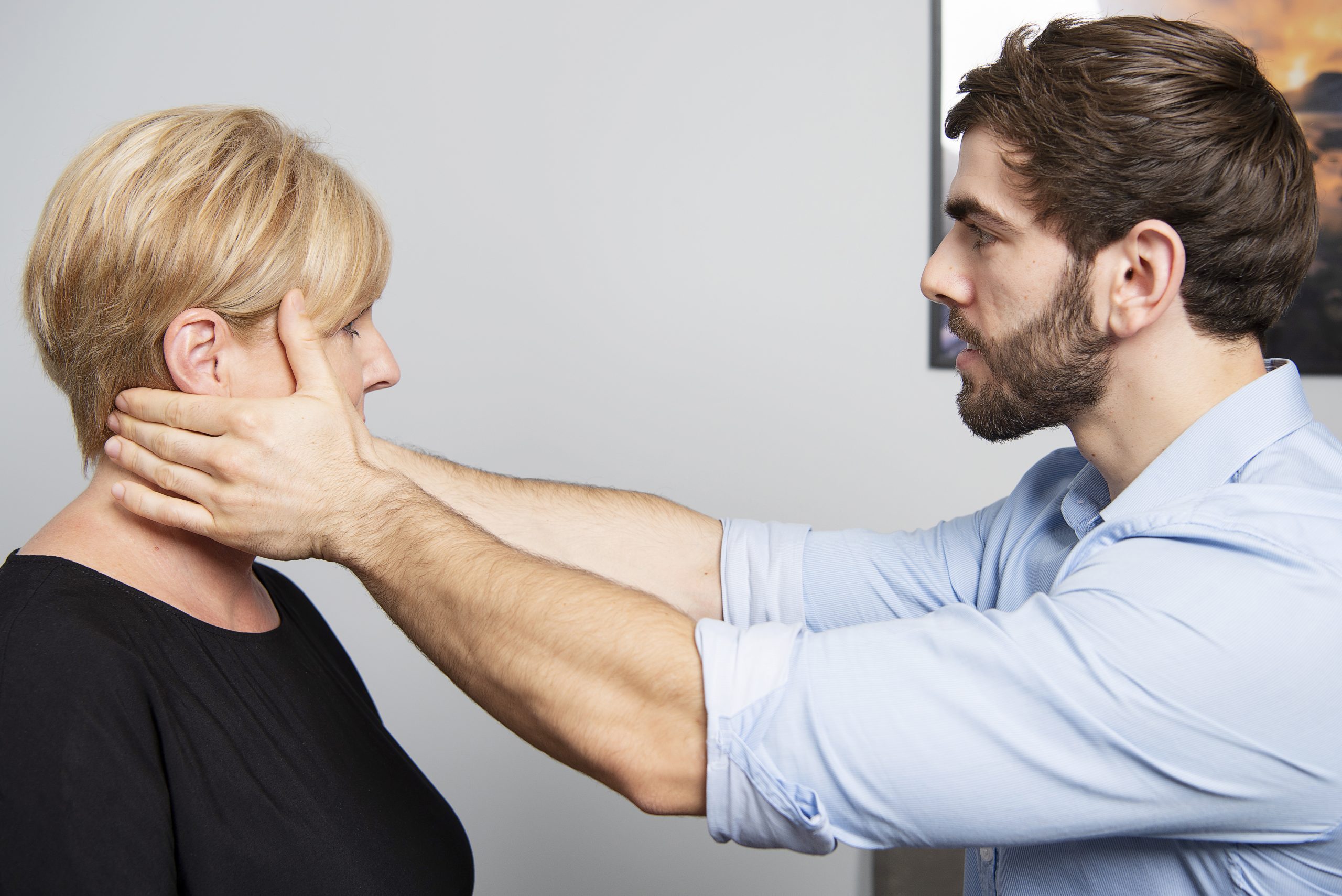
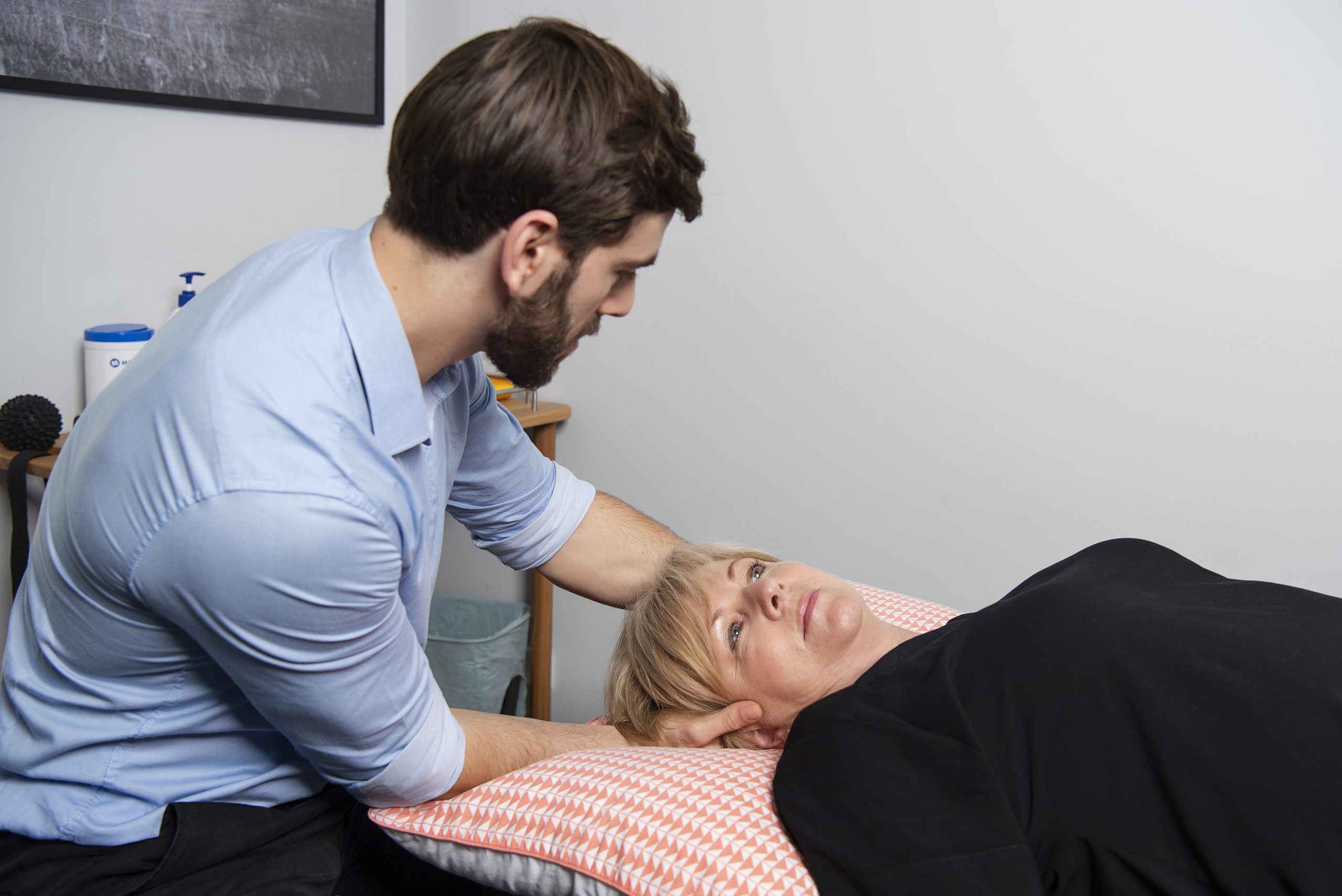
The Watson Headache® Approach
This evidence-based method focuses on two goals:
Immediate relief – We treat symptoms during the session, especially if you’re in pain.
Long-term change – We retrain the way your nervous system processes pain, so migraines become less frequent, less intense, and eventually, less present in your life.
If you have a migraine during your appointment, we focus on the C2 segment to see if your pain improves with treatment. If not, we gently stress specific areas of the neck to reproduce your symptoms. If we can reproduce them, we can treat them.
Pregnancy Support Pillows
Many of our headache and migraine treatments require patients to lie on their tummy—but we know that’s not always easy during pregnancy or with breast tenderness. That’s why we offer pregnancy support pillows designed to help you lie comfortably and safely, even in the later stages of pregnancy. You can relax and focus on feeling better—while we focus on delivering the best care possible.

Why Choose Us for Migraine Physiotherapy in Brisbane?
- We specialise in neuro-driven migraine care, not general physio.
- We offer longer initial appointments to fully understand your condition.
- We measure outcomes objectively and adjust treatment accordingly.
- We focus on root causes, not just pain relief.
- If it’s not working, we’ll tell you. No ongoing appointments without progress.
Reach Out To Us!
Get in touch with us today for more information on our services or to make an appointment with our friendly team.
Ready To Book Online?
Living with chronic headaches and pain? You can now book your headache treatment appointment online at any time!

Book Migraine Treatment with a Specialist Physio in Brisbane
If migraines are ruling your life, you don’t have to accept them as your normal. Our migraine specialists are here to help you find a better way forward through precise diagnosis, targeted treatment, and a deep understanding of the brain-body connection.
Start reclaiming your time, energy and peace of mind. Book a consultation with the Headache, Neck & Jaw Clinic today.
Frequently Asked Questions
At our migraine clinics in Brisbane, we identify and treat neural sensitivity in the neck, especially at the C2 level. Using hands-on techniques, we calm overstimulated nerves and restore normal function to reduce migraine frequency and severity.
Medications often mask the symptoms. Physiotherapy targets the source, aiming to reduce how often migraines occur and how intensely they hit, without long-term reliance on pills.
No problem. We can safely recreate the patterns behind your migraines using specific testing techniques. This allows us to confirm if your neck is involved.
Many clients notice a change in the first 3–4 sessions. If there’s no progress by then, we won’t keep you guessing. We’ll help you find the next best step.
Yes. The Watson Headache® Approach is gentle, safe, and based on clinical research. There are no high-velocity manipulations.
